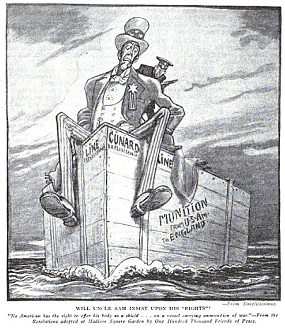by Richard van Pelt, WWI Correspondent
Two editorials in the Oregon Statesman presented readers with the impact and consequences of technology in modern warfare:
IS THE RIFLE OBSOLETE?
Experts from the front indicate that in the rapid evolution of new war methods the rifle, the oldest and most universal of modern weapons, is losing its effectiveness. It may eventually be as obsolete as the arrow, spear, broadsword and battle axe.
It is not only that battles are being fought more and more by artillery, with the infantry merely serving to occupy the trenches after then enemy has been blasted out of them. There is a real substitute for the rifle. The machine gun is taking its place. The allies so far have not yielded altogether to the tendency, and England particularly is still taking pains to teach her recruits to shoot straight and use the bayonet. But Germany, which has produced most of the innovations in this war,is adapting herself rapidly to the new order of things. She is said to have at least 100,000 machine guns on the various fronts, and is turning out more of the type as fast as her great resources will permit. She is teaching her soldiers to operate these guns effectively, rather than to become expert rifle marksmen. And in their use she appears to be evolving a modification of the trench warfare which itself was the last word only a few months ago.
A few men, it seems are being stationed in the advance trenches with these automatic guns, protected by wire entanglements and concrete works. The main line of infantry is kept in the rear, to be used only in emergencies. Thus for defensive fighting particularly the chief reliance is on the machine gun which fires bullets at the rate of several hundred a minute. A few such guns can spray an attacking party with cold lead that cuts men down as a reaper cuts standing grain.
A BIT OF WAR
“On the ground from the Lorette Heights to Neuville and the Labyrinth,” says a German general, as quoted by an American correspondent, “are perhaps 10,000 unburied or partly buried dead. The stench is pestilential, By means of a hose we’ve thrown creosote or quicklime upon those nearest our trenches. As a matter of self-preservation both sides appear lately to have come to an unspoken agreement to bury those nearest them at night.
“It’s ghastly beyond imagination Words can’t portray to the mind that picture – by day and night white eyes staring out of faces burned coal-black by the sun. Thre are places where there are veritable piles of bodies. As the days and weeks go by they shrivel and shrink together like little heaps of old clothes. Those silent heaps are more weird by moonlight than by day.
“I wish those who cause and make war with indifference would be put into that ‘hell of death’ between Neuville and the Lorette Heights for a little while.”
That’s the way they talk now. All the belligerents have learned what war is, and wether naturally pacifists or militarists, they’re sick of it. The pity of it is that they didn’t realize it last July.
The German general’s quotation was originally reported by Karl H. von Wiegand, who reported on the war from the German side of the trenches. The quotation also appears in an article in “The Fatherland – Fair Play For Germany and Austria-Hungary” as part of an article on Bethlehem, Pennsylvania. The article discusses the wealth and prosperity derived from the production of weapons, used primarily by Britain and France (Germany having little or no access to American markets). The article presents a perspective shared by many Americans of German extraction and points to the moral quandary American industry had to address (and is presented as a preface to the general’s description of the carnage in France):
The Town of the Apocalypse
A visit to the little town of Bethlehem, Pa., is impressive. It presents a spectacle of thriving prosperity and indefatigable activity. Forty thousand workmen are said to be employed in the vast works. Wages are high. The town, within the past months has enjoyed a tremendous boom. People are getting rich. Prices have gone up. By night the heavens are reddened by the belching red blast of forges. Miles distant the heavens are sinisterly aflame. For five miles one passes plants where molten steel is steadily running from mighty crucibles. Day and night men are employed in the ceaseless, tireless labor of casting tools of war.
It is a far call from the little town of Bethlehem to the battlefields of Europe. Against this picture of thrivingly prosperous Bethlehem, with the heavens ablaze with a glow red as blood at night, rises a picture of a battlefield in Europe.






Leave A Comment